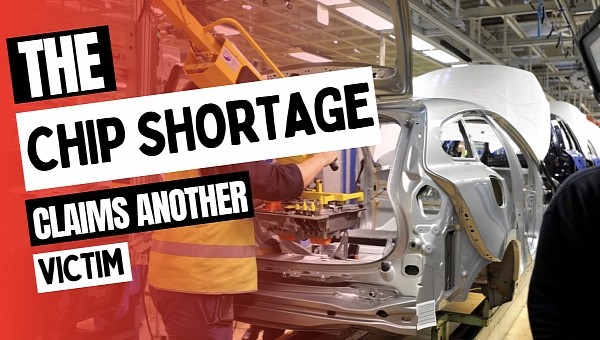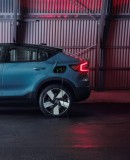Back in 2020, when the world first encountered a constrained chip inventory, pretty much everybody expected the problem to be resolved by the end of the year.
It didn’t take long for industry analysts and experts across the globe to figure out that the chip shortage would remain a problem in 2021 as well, so all their forecasts were updated accordingly. Most of them expected foundries to be able to resolve the supply issues by mid-2021, especially following the massive investments in capacity.
Fast-forward to today, and we’re pretty much at a similar point.
Experts believed the chip crisis would come to an end in late 2022, once again following the aggressive investments in production capacity, but it’s pretty clear this isn’t going to happen.
And Volvo has just provided proof on this front, as the company is temporarily closing one plant because of the lack of semiconductors.
Very few specifics are available right now, but company spokesperson Merhawit Habte was quoted as saying to a local newspaper that Volvo would halt production at one of its main facilities for a full week. Habte cited the semiconductor shortage as the reason.
Just like before, anticipating when the chip shortage would come to an end is pretty much impossible. GM’s CEO, for instance, believes the constrained inventory would continue to be a problem in 2023 and even beyond.
Of course, it’s the beyond part, the one that’s more concerning, as this shows just how much uncertainty is currently in the automotive industry whenever the chip supply is involved. Tech companies, on the other hand, don’t seem to believe that the semiconductor problems can be resolved earlier than 2024, which means we’re only halfway through the crisis, and we still have nearly two years of ridiculous waiting times for a new car, regardless of the brand we choose.
Fast-forward to today, and we’re pretty much at a similar point.
Experts believed the chip crisis would come to an end in late 2022, once again following the aggressive investments in production capacity, but it’s pretty clear this isn’t going to happen.
And Volvo has just provided proof on this front, as the company is temporarily closing one plant because of the lack of semiconductors.
Very few specifics are available right now, but company spokesperson Merhawit Habte was quoted as saying to a local newspaper that Volvo would halt production at one of its main facilities for a full week. Habte cited the semiconductor shortage as the reason.
Just like before, anticipating when the chip shortage would come to an end is pretty much impossible. GM’s CEO, for instance, believes the constrained inventory would continue to be a problem in 2023 and even beyond.
Of course, it’s the beyond part, the one that’s more concerning, as this shows just how much uncertainty is currently in the automotive industry whenever the chip supply is involved. Tech companies, on the other hand, don’t seem to believe that the semiconductor problems can be resolved earlier than 2024, which means we’re only halfway through the crisis, and we still have nearly two years of ridiculous waiting times for a new car, regardless of the brand we choose.
























































